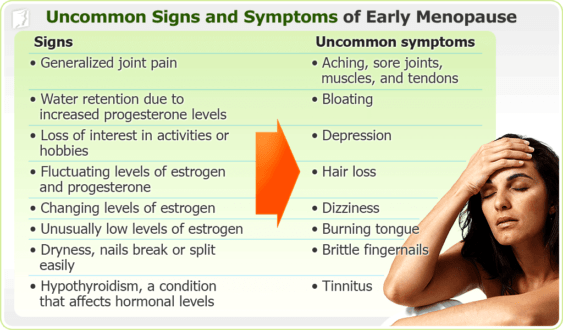 What is Menopause?
What is Menopause?
Menopause is defined as the time that marks the absence of a woman’s menstrual cycle for 12 months. This process takes place when the functions of the ovaries cease, which means that you can no longer conceive. However, this transaction does not occur overnight; instead it is a gradual process, and the experience is different for each woman.
Most women go through this process around the age of 51; however, it can also occur as early as one’s 30s or as late as one’s 60s. There is no other reliable way of predicting when a woman will experience this situation. The age at which you got your first period also has nothing to do with the age of menopause onset, dispelling a common myth.
Another term that is commonly used is Perimenopause. It refers to the time around the actual menopause period. It is used to describe the transitional period a woman experiences.
Menopause is a natural process that every woman goes through. This process usually happens when there is a reduction in the amounts of the hormones estrogen and progesterone being produced. Estrogen controls the menstruation process, whereas progesterone helps in preparing the body for a pregnancy. As fertility declines your ovaries then stop producing eggs, and of course you then no longer have periods.
It is first important to understand that each woman’s experience is going to be different. Some may experience few or no symptoms, while others may experience both physical and emotional symptoms. The extent and severity of these symptoms tend to vary for each woman.
In some cases, these symptoms may come and go over extended periods, and this too is highly dependent on the individual.
Symptoms of both perimenopause and menopause include
Women experiencing it, can also undergo some severe complications. These include:
Reduced estrogen levels can increase one’s chances of ending up with heart diseases such as heart attack, stroke, etc.
Women often lose bone density during the first few years after experiencing it. Low bone density increases the risks of developing osteoporosis
It causes the vaginal and urethra tissues to lose their elasticity. This results in frequent, and sudden overwhelming urges to urinate, which can be followed by involuntary loss of urine as well. You may also involuntarily urinate after coughing, sneezing, laughing, etc.
Women tend to face a higher risk of breast cancer after menopause.
Although menopause cannot be treated, there are different ways you can reduce or mitigate its symptoms. These include:
You can supplement your estrogen and progestin levels through a patch on the skin. The patch releases these hormones into the body. Although HRT is extremely effective for keeping these symptoms at bay, it does have the potential for severe adverse side effects as well. Ask your doctor about the risks before making any decision.
Medications for vaginal symptoms are part of the non-hormonal therapy. If you cannot take hormones, then you can take medications for vaginal dryness. There are drugs for treating vaginal symptoms, and typically these drugs have low amounts of estrogen in them. These medications can be found in the form of creams, tablets, and rings to be placed in the vagina.
Low-dose antidepressants are also used to decrease hot flashes, and there are other drugs available that are specifically for hot flashes (Neurontin).
Yoga and meditation along with other relaxation methods reduce stress caused by it.
Home remedies that include plant-based estrogen such as black cohosh can also help in treating hot flashes
To reduce the symptoms of menopause, it is advisable to make some changes in your daily lifestyle. You should get rid of or reduce the frequency of bad habits like:
IMPORTANT NOTE: The above information is intended to increase awareness of health information and does not suggest treatment or diagnosis. This information is not a substitute for individual medical attention and should not be construed to indicate that use of the drug is safe, appropriate, or effective for you. See your health care professional for medical advice and treatment.

Canada Canadian Pharmacy dispenses all medications from licensed and regulated independent pharmacy partners internationally, including but not limited to Australia, Canada, New Zealand, India, Mauritius, Turkey, United States, Singapore and the United Kingdom. All Images on this site are registered trademarks of original manufacturers, international exporters, and property of their respective owners and are for reference only. Canada Pharmacy Online procures all products from licensed regulated international in order to provide you unbeatable lowest prices and prescription discounts for all your prescription medications, medications and Canadian Drugs at Canada Pharmacy Online.
2005-2023 Rxdrugscanada.com